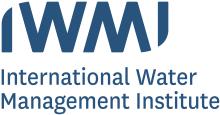Resource information
Recurring water crises, global water initiatives, and demands for water reforms by development banks, have all pushed water up the agenda of most Mekong-region countries. Many changes have already been made. Now decision makers need to know what has worked, what hasn?t, and why. To find out, IWMI has reviewed new water policies, plans and laws, and assessed participation, the new water ?apex bodies?, and integrated water resources management (IWRM). The findings show that top-down state policies based on ?blueprints? are widely applied in a one-size-fits-all approach, without taking local realities into account. Water planning is still largely expert-driven, and focused on procedures and targets. There is little room for decision-making that is based on negotiations between users, line agencies, NGOs and politicians, for example. Although much mention is made of participation and IWRM, little is being done on the ground. To bridge these divides, better forms of governance are needed. And greater efforts need to be made to understand complex local situations?so that policymakers are better informed, and new policies are appropriate and workable. Key to this will be an understanding of what causes new policies to succeed or fail in different contexts.



